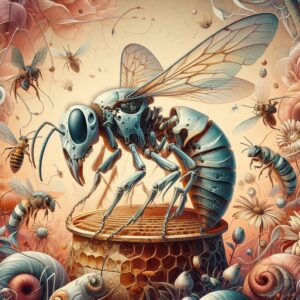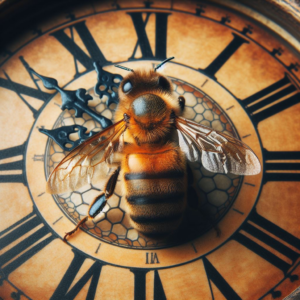Welcome to the world of bee pollen and its potential benefits for our furry friends! Bee pollen is a nutrient-rich substance collected by bees from flowering plants.
These tiny, golden pollen grains pack a punch when it comes to nutrition. Bee pollen has been consumed by humans for centuries. Recently, its popularity in the pet industry has been steadily growing.
A Not-So-Secret Superfood
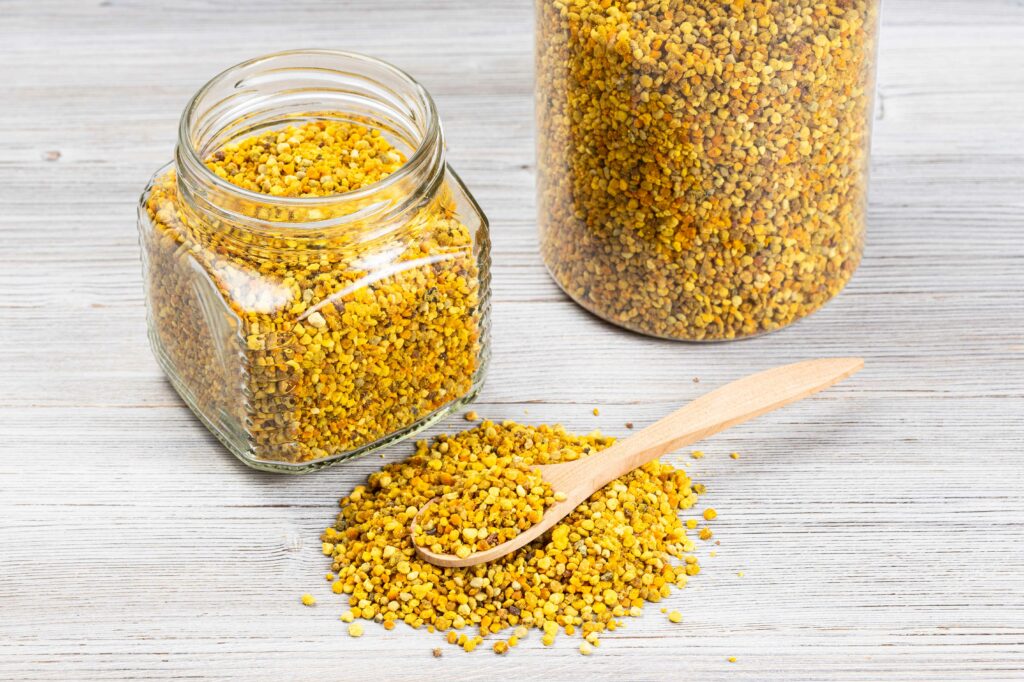
Bee pollen is gaining recognition as a health-promoting addition to dogs’ diets. Pet owners seek natural alternatives for their dogs’ well-being. Bee pollen, with its amazing benefits, has caught their attention. People are conscious that their pets’ health is connected to what they consume.
Dogs, like us, can have health issues. These can include allergies, digestive problems, or a weakened immune system. This awareness prompts pet owners and veterinarians to supplement their dogs’ food.
The Buzz Around Bee Pollen for Dogs
This topic reveals that bee pollen shows promise for supporting our dog’s well-being. It provides vital nutrients like proteins, vitamins, and minerals. Surprisingly, it contains more amino acids than beef or eggs! Given its impressive nutritional profile, it’s no wonder bee pollen is gaining recognition.
Bee pollen offers potential health benefits for dogs. Boosting the immune system, supporting liver function, and acting as a natural antibiotic. Despite its promising effects, approach bee pollen as a natural remedy with caution.
When giving your dog bee pollen, consider the right dosage and watch out for potential allergies. In the next sections, we’ll delve into these details to help you make informed decisions about your furry friend’s well-being.
What is Bee Pollen?
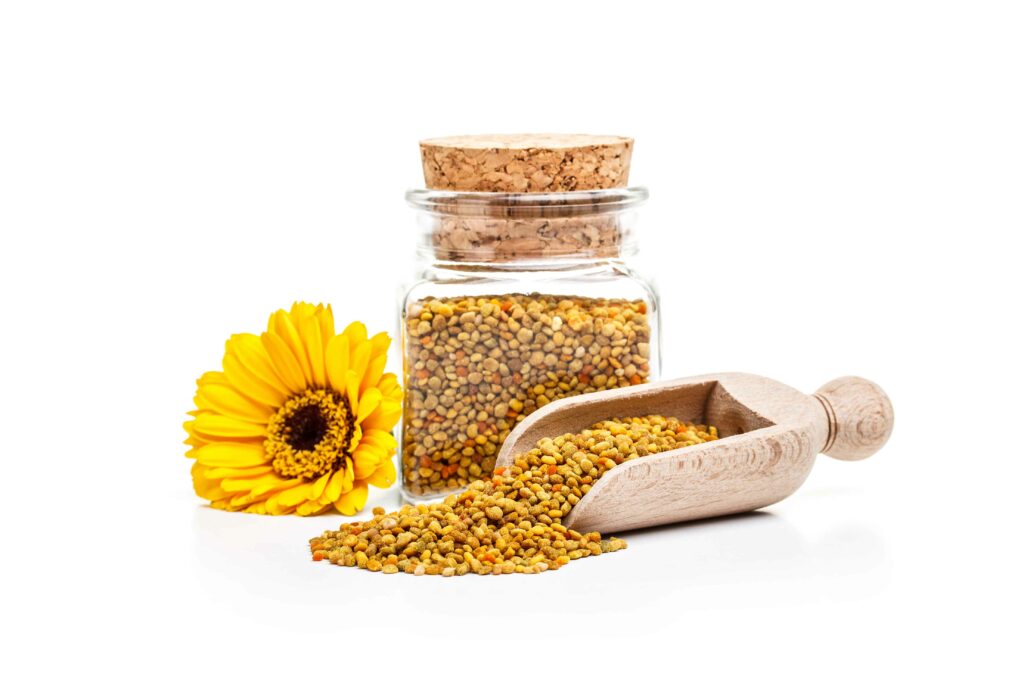
A Natural Powerhouse of Nutrients
Bee pollen, nature’s superfood, is a fine powder collected by bees from flowers. It’s not regular flower pollen but a mix of flower pollen, bee saliva, and nectar. This unique blend makes bee pollen valuable for humans and animals, including dogs.
How Bees Collect and Process Pollen
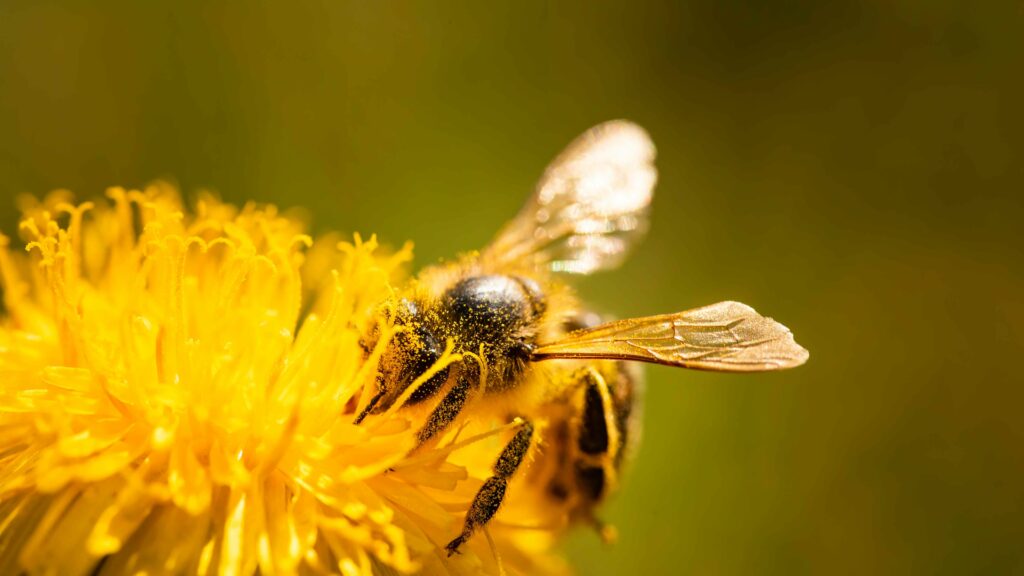
Worker bees venture out from the hive in search of nectar and pollen-rich flowers. As they land on the flowers, tiny hairs attract and collect pollen grains.
The bees then moisten the pollen with their saliva to make them sticky enough to stick to their legs. These small yellowish pellets are known as “bee bread” or bee pollen.
Once back at the hive, worker bees deposit these pellets into cells within the comb. They further process it by adding enzymes from their salivary glands. These break down some of the complex compounds in the pollen grains.
Over time, moisture evaporates from the cells, creating nutrient-rich bee pollen granules. Organic bee pollen composition varies by region, as different plants yield distinct pollens.
Local honey may have traces of local allergenic pollens. This can potentially aid dogs with seasonal allergies. Bees transform flower pollens into a supplement. This supports vitality in honeybee colonies and our canine friends when given appropriately.
Nutritional Benefits of Bee Pollen for Dogs
High Protein Content in Bee Pollen
Bee pollen is rich in protein, making it an excellent addition to a dog’s diet. Protein is vital for muscle growth, repair, and overall development. Bee pollen actually contains more protein per weight than any animal source. This is a remarkable feat for a natural substance.
Adding bee pollen to your dog’s meals provides for their well-being. Bee pollen’s high protein content helps maintain muscles and strength.
Essential Amino Acids Present in Bee Pollen
Amino acids play a vital role in various bodily functions. What makes bee pollen particularly beneficial is its composition of essential amino acids. These are amino acids that cannot be produced by the dog’s body and must be obtained through their diet.
Bee pollen is rich in crucial amino acids. These include leucine, valine, histidine, isoleucine, and more. These amino acids help cells function. They also support the nervous system, aid muscle recovery, and boost overall health.
Rich Source of Vitamins and Minerals
Bee pollen is packed with nutrients beneficial for your dog’s health. Bee pollen includes vitamins A, C, D, E, and B-complex vitamins. These B- complex vitamins include B1, B2, B3, B5, B6, B7, B9, and B12.
Bee pollen is a rich source of essential minerals. These include calcium, phosphorus, potassium, magnesium, zinc, selenium, and iron. These nutrients are crucial for maintaining healthy organ function. They also support the immune system, healthy liver, and red blood cell production.
Adding bee pollen to your dog’s diet provides a natural, nutrient-packed supplement. Always consult your veterinarian before making dietary changes. This is to ensure it suits your dog’s specific needs.
Health Benefits for Dogs Consuming Bee Pollen
Boosting Immune System Function

Bee pollen offers numerous health benefits to our canine companions. One significant advantage is its ability to boost the immune system function in dogs.
Bee pollen is rich in essential nutrients such as vitamins A, C, and E, along with minerals like zinc and selenium. These nutrients play a vital role in supporting the immune system. They also help to fight infections and diseases.
Bee pollen’s amino acids strengthen the immune response. It does so by producing white blood cells and antibodies. It’s also rich in antioxidants that neutralize harmful free radicals. It also protects cells and bolsters the immune system.
Enhancing Overall Vitality and Energy Levels
Bee pollen boosts a dog’s vitality and energy. Its rich nutrients offer a natural energy boost. Amino acids, crucial for energy, play a vital role in protein synthesis.
Bee pollen provides extra amino acids. These fuel muscles for better physical performance in dogs. It contains trans-cinnamic acid, enhancing blood circulation, delivering oxygen, and promoting overall vitality.
Supporting Digestive Health in Dogs
Bee pollen supports dogs’ immune system and digestion. Like raw honey, it contains enzymes beneficial for digestive health.
The natural enzymes in bee pollen help digest food. They help in breaking down nutrients for easier absorption. This can ease digestive issues in dogs, like constipation or diarrhea.
Bee pollen has properties that fight harmful bacteria and promote a healthier gut. This further aids digestion. Introduce bee pollen slowly to a dog’s diet. Start with small doses to avoid potential adverse reactions or upset stomachs.
Potential Allergy Concerns with Bee Pollen

Just like humans, dogs can develop allergies to certain substances, including bee pollen. It’s important to be vigilant and observe any signs of allergic reactions.
Common symptoms may include itching, sneezing, coughing, watery eyes, runny nose, or skin rashes. Some dogs may even experience gastrointestinal issues such as vomiting or diarrhea.
Keep a close eye on behavior and physical condition after introducing bee pollen. If you notice any of these symptoms persisting, it is crucial to consult with a veterinarian.
Steps to Take if a Dog Shows Signs of an Allergic Reaction
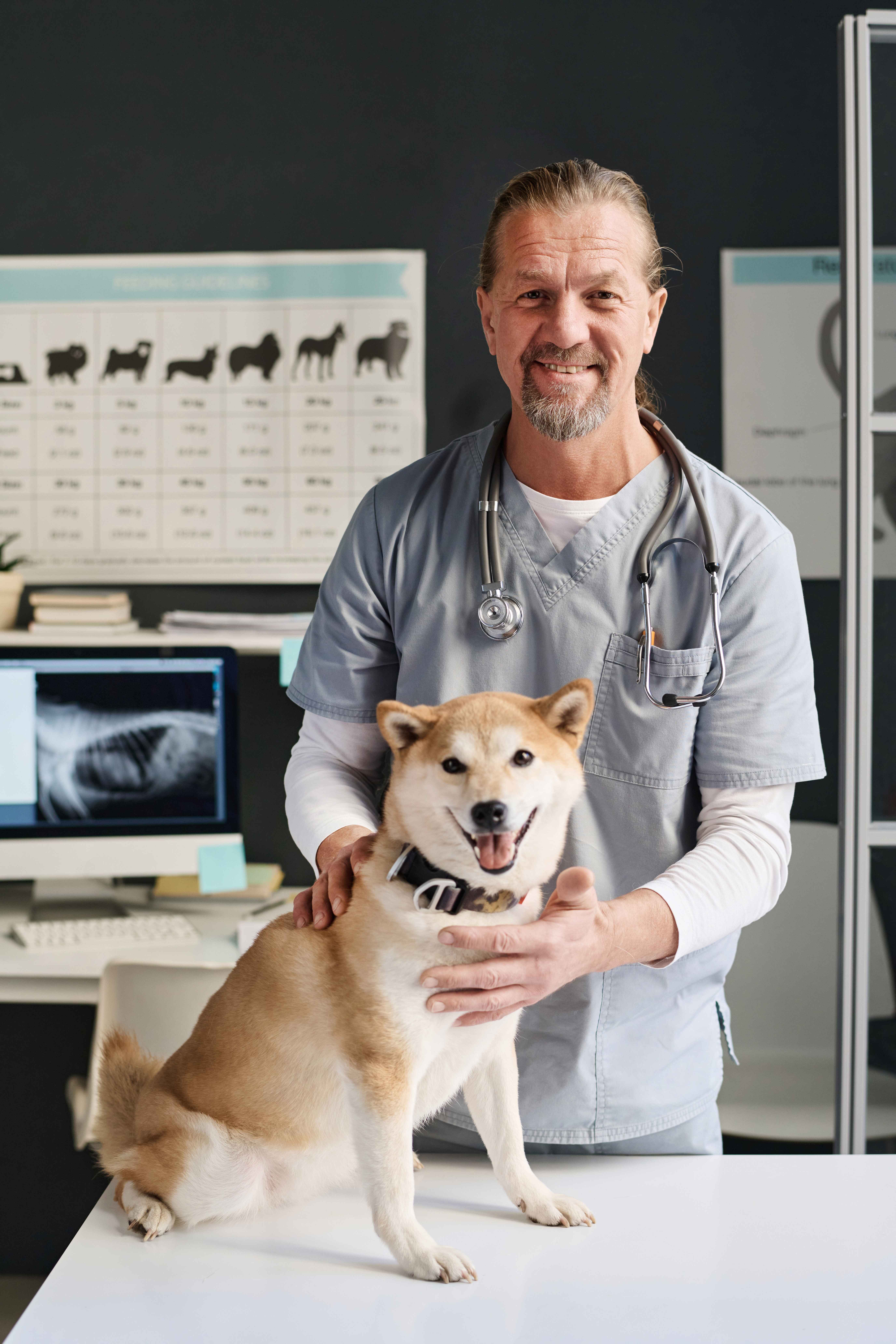
If your dog shows signs of an allergic reaction to bee pollen, stop using it immediately. This will reduce symptoms and minimize the risk of further reactions.
If you suspect an allergy to bee pollen, consult your vet promptly. They will give you a diagnosis and guidance tailored to your dog. The vet may conduct tests or prescribe medication to alleviate symptoms.
Every dog is unique; some may benefit from bee pollen. Pay attention to your dog’s well-being. Seek professional advice when introducing new supplements for their safety and overall health.
In “Potential Allergy Concerns with Bee Pollen,” we discuss identifying allergic reactions in dogs. We also offer guidance on what to do if a dog shows signs of an allergic reaction to bee pollen.
How to incorporate bee pollen into a dog’s diet
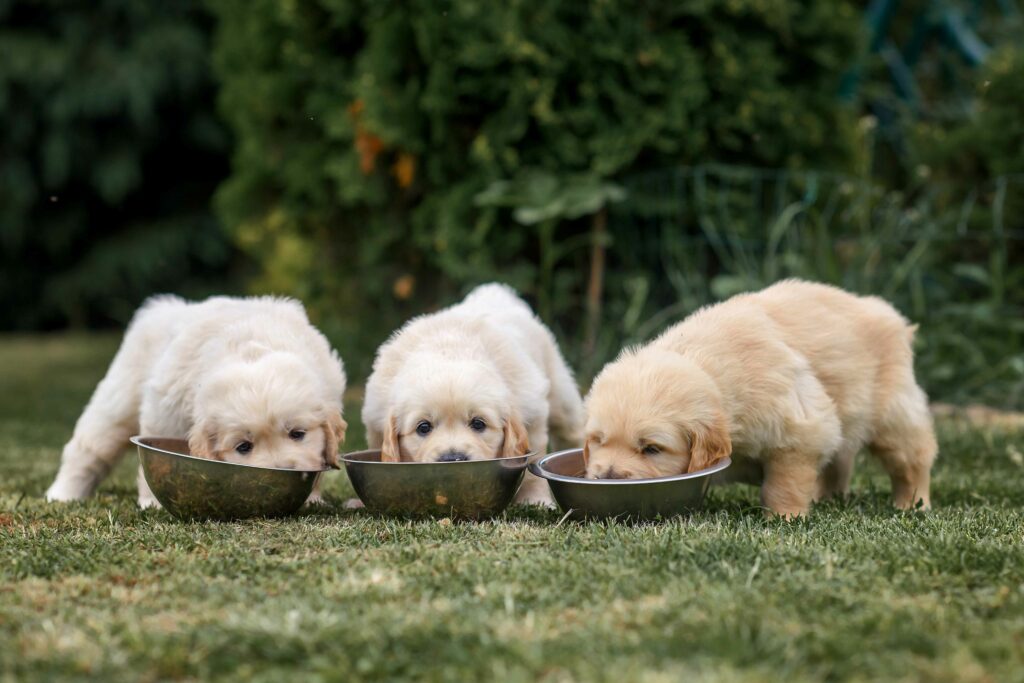
Before giving your dog bee pollen, consult your vet. They know your pet’s health history and can give personalized advice.
Check with your vet to see if bee pollen is okay for your dog and to figure out the right amount. This helps you make smart choices for your dog’s diet. This also avoids any issues with medications or health conditions.
Recommended dosage guidelines for dogs based on weight
Give bee pollen to your dog based on their weight, and don’t go over the recommended amount. Even natural supplements can cause issues if taken too much. Start with small doses and increase gradually as necessary.
For smaller dogs weighing around 10 pounds, begin with 1/8 teaspoon of bee pollen per day. Make sure to observe how they respond. Larger dogs weighing 50 pounds or more may require up to 1 teaspoon local bee pollen daily.
Consult your vet for precise bee pollen recommendations for your dog. Including bee pollen in their diet with vet guidance ensures the best care for your furry friend.
Other uses and applications of bee products for dogs
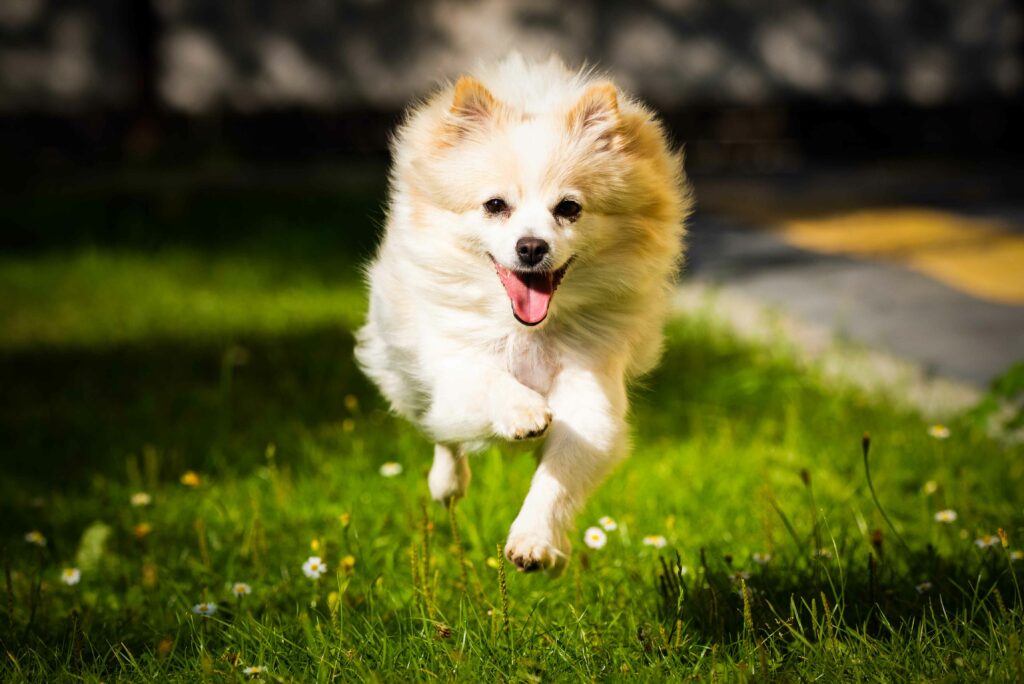
Propolis: its benefits as a natural antibiotic for dogs
Bee propolis, known as “nature’s antibiotic,” has great health benefits for dogs. Bees collect this sticky substance from tree buds to seal their hives. Propolis is rich in compounds with anti-fungal and antibacterial properties. This provides a natural alternative to conventional antibiotics for treating infections in dogs.
Propolis has a rich nutrient profile. They include essential fatty acids, vitamins, minerals, and antioxidants. It can boost the immune system, speed up wound healing, and reduce inflammation.
Royal jelly: potential uses in promoting skin health
Royal jelly, a marvelous bee product, may benefit our furry friends’ skin health. This creamy substance is exclusively fed to the queen bee throughout her life.
Royal jelly is rich in nutrients like folic acid and B-complex vitamins. These help in supporting healthy skin. It includes trans-cinnamic acid. This is known for its anti-inflammatory effects on the skin. It helps in strengthening blood vessels and improving blood flow.
Adding royal jelly to your dog’s diet may ease dryness or itching from allergies. Some pet owners have seen positive results using royal jelly. It is found to help manage allergy symptoms and skin conditions like dermatitis or hot spots.
Bee pollen is nutritious for dogs, providing high protein and essential amino acids. Other bee products, like propolis and royal jelly, also have health benefits. Propolis is a natural antibiotic with anti-fungal properties. This leads to support of the immune system and wound healing.
Royal jelly helps maintain healthy skin with its nutrients and anti-inflammatory effects. Always consult your vet before giving your dog any bee products.
Ensure the right dosage and prevent allergies. Gradually adding bee products to your dog’s diet can improve many things. These include urinary tract health, maintaining a healthy weight, and enhanced skin condition.
Conclusion
Add bee pollen to your dog’s diet for nutritional benefits. High protein aids muscle repair and growth. Rich in vitamins and minerals, supporting overall well-being.
Boost your dog’s immune system and aid digestion with bee pollen. Bee pollen contains natural enzymes. Consult your vet before adding it to your dog’s food to check for allergies or sensitivities.
When introducing bee pollen, start with small amounts and closely monitor your dog. Do this to ensure there are no adverse reactions. The recommended dosage of bee pollen varies based on the weight of the dog.
Use bee pollen for allergy relief, antimicrobial benefits, and as a natural antihistamine. Prioritize your furry friend’s well-being by seeking professional advice. Do this before making significant changes to their diet or healthcare routine.
Counteract bee problems with D-Termination: Premier Pest Control in Las Vegas!

Dealing with bee challenges on your Las Vegas property? Rely on D-Termination for expert assistance. Our skilled team excels in eliminating bee infestations, restoring comfort and peace to your space. Bid adieu to bees—choose D-Termination for effective pest control today!
Reach out to us at 702-919-6310 or visit dtermination.com to schedule your bee control service and reclaim your space from these bothersome insects.
Frequently Asked Questions:
Start with a small amount of bee pollen for dogs, such as a pinch, and monitor for any adverse reactions.
Bee pollen is used for its potential nutritional benefits, supporting the immune system and overall health in dogs.
In moderation, pollen is generally safe for dogs, but individual sensitivities vary.
Bee pollen may provide nutritional benefits, including vitamins, minerals, and antioxidants for dogs.


